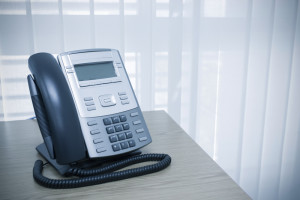 Advances in technology offer a variety of benefits to businesses looking for ways to service their customers as efficiently and effectively as possible. New technologies are introduced every day that improve phone communications and make businesses processes simpler and more meaningful.
Advances in technology offer a variety of benefits to businesses looking for ways to service their customers as efficiently and effectively as possible. New technologies are introduced every day that improve phone communications and make businesses processes simpler and more meaningful.
The amount of choices and the pace of change are enough to make even the most tech savvy companies dizzy. Large companies with staff dedicated to evaluating and deploying technology have an advantage over small companies in that they have not only the personnel resources to keep up with changing phone technologies, but also the money to invest in them.
Small and medium-sized businesses should be careful not to let these challenges stop them from deploying phone technologies that fit their budget and make sense for their operational needs. Doggedly hanging on to systems and technologies that slow the company down can ultimately cost more in the long run in terms of customers lost. Phone technology is one area where it pays to let go of yesterday’s technology.
Out with the old
New phone technologies and systems gain traction for a reason; they make things easier, better, more efficient or more effective. Most companies have transitioned away from paper filing systems and typed memos to electronic filing and email. Some companies hang on to these systems out of familiarity and reluctance to tamper with a system that has always worked. If they made the transition to new technologies, however, they might realize significant time savings and efficiencies.
Storage and manipulation of data is another area where companies get stuck in technologies they are reluctant to change. Not that long ago, many companies maintained customer phone numbers and other contact information in spreadsheets that allowed them to share and manipulate the data in ways that served them well. But times have changed and better options exist.
Right-sized solutions
SMBs shouldn’t be disheartened about the phone system buying task, nor should they assume that there won’t be solutions available within their budget. When it comes to phone solutions, older is almost never better.
A good phone system is a worthwhile investment and can reap benefits that can bolster the company’s bottom line. For SMBs, business phone systems exist that can provide big business benefit on a small business budget.
VoIP systems are a great example of a robust phone technology that is scalable to the budget and requirements of companies of all sizes. The systems support the growing need for mobile services and provide advanced applications via their Internet architecture.
It’s easy to opt for the familiar and stay the course when it comes to making technology choices, but sometimes this option can actually be detrimental. SMBs have valid reasons to be cautious but also might have more at stake if they don’t embrace new phone technologies.
Taking advantage of technology advances, particularly with communications technologies, not only can make business processes more efficient but can also put an SMB on a level playing field with large companies in a way that wasn’t possible in the past. The question is not can SMBs afford new phone technology; it’s can they afford not to have it.
